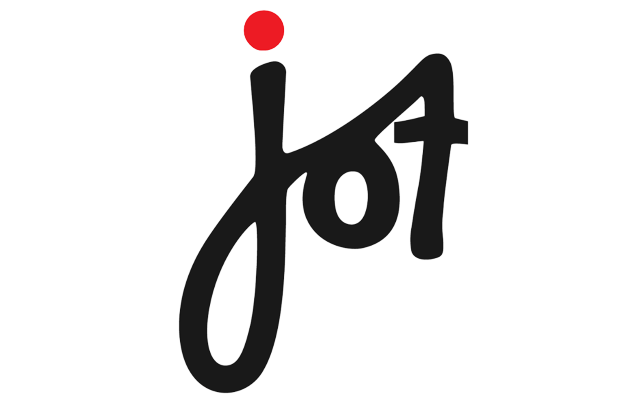The economic phenomenon of inflation has a big effect on people’s lives and financial stability. The buying power of money declines when prices grow over time, having an impact on people, businesses, and the economy as a whole. Making wise financial decisions and preserving one’s economic stability need an understanding of the connection between inflation and buying power.
We shall discuss the idea of inflation and how it affects buying power in this essay. We will look into the variables that affect inflation’s impact, buying power protection techniques, and the wider social and economic effects of inflation.
By the conclusion, you will have a thorough comprehension of how inflation impacts your capacity to purchase products and services as well as what you can do to lessen its consequences.
Understanding Inflation
Firstly we should try to understand the inflation principles in order to understand how it affects/causes. Basically, the rise in prices of goods and services is known as Inflation. The rise in price depends on more demand than supply for products and services.
Definition and Causes of Inflation:
Inflation can be caused by various factors, including:
- Demand-Pull Inflation: Occurs when aggregate demand surpasses aggregate supply, creating upward pressure on prices.
- Cost-Push Inflation: Arises when the cost of production increases, leading to higher prices to maintain profit margins.
- Built-in Inflation: Results from the expectations of price increases, where workers demand higher wages, leading to increased production costs and subsequently higher prices.
- Monetary Inflation: Caused by an increase in the money supply in the economy, leading to excess liquidity and higher prices.
Types of Inflation:
Inflation can manifest in different forms:
- Moderate Inflation: Characterized by a low and stable increase in prices, often considered healthy for the economy as it encourages spending and investment.
- Hyperinflation: This represents an extremely rapid and out-of-control increase in prices, resulting in a loss of confidence in the currency and severe economic disruptions.
- Deflation: The opposite of inflation, deflation occurs when the general price level decreases, leading to reduced consumer spending and economic stagnation.
How Inflation Affects Purchasing Power:
For people and households, the effect of inflation on buying power is a major concern. Purchasing power actually refers to the quantity of products and services purchased with a sum of money. As inflation takes place, the value of money declines, lowering people’s purchasing power.
- Relationship between Inflation and Purchasing Power
The relationship between inflation and purchasing power is inversely proportional. When prices rise due to inflation, the same amount of money can purchase fewer goods and services. For example, if the inflation rate is 5% per year, an item that costs $100 today will cost $105 in a year, reducing the purchasing power of $100.
- Real vs. Nominal Income
Real and nominal income must be distinguished in order to properly comprehend how inflation affects buying power. Real income accounts for the effects of inflation on buying power whereas nominal income refers to the actual cash amount one earns.
As prices increase, the same nominal income can buy less, resulting in a decrease in real income. To maintain or increase real income, individuals need their nominal income to grow at a rate higher than inflation.
- The Erosion of Purchasing Power
Purchase power loss may affect people and the economy as a whole in a number of ways. People may need to spend more money on necessities as a result of price increases, leaving less money for savings or discretionary expenditure. Particularly for people with fixed incomes or limited financial means, this may have an influence on the level of living.
Additionally, over time, inflation devalues investments and savings. The buying power of savings decreases if investment returns are not higher than inflation. Consequently, inflation may have a big impact on long-term financial goals like retirement planning.
Factors Influencing the Impact of Inflation on Purchasing Power:
Several factors influence how inflation affects purchasing power. Understanding these factors can help individuals make informed decisions to protect their economic well-being.
- Wage Growth and Inflation
The correlation between wage growth and inflation is one important element. People’s buying power increases when earnings grow at a faster pace than inflation. However, buying power declines if earnings are unable to keep pace with inflation.
- Price Elasticity
Price elasticity refers to the responsiveness of demand to changes in price. Inflation affects different goods and services to varying degrees based on their price elasticity. Essential goods with low price elasticity, such as food and housing, may see a greater impact on purchasing power as their prices rise more significantly than elastic goods like luxury items.
- Consumer Behavior
Consumer behavior plays a role in how inflation affects purchasing power. When faced with inflation, individuals may adjust their spending patterns and opt for more affordable alternatives or reduce discretionary purchases. Such adjustments can help mitigate the impact on purchasing power.
- Government Policies
Government policies and actions can influence the impact of inflation on purchasing power. Effective monetary and fiscal policies aim to maintain price stability and limit inflationary pressures. However, ineffective policies or excessive money supply can exacerbate inflation and erode purchasing power.
Strategies to Protect Purchasing Power from Inflation:
While individuals may not have direct control over inflation, there are strategies they can employ to safeguard their purchasing power.
- Investing in Assets that Appreciate with Inflation
Certain assets tend to appreciate in value as inflation occurs. These include real estate, stocks, and commodities like gold and silver. Investing in these assets can potentially offset the erosion of purchasing power caused by inflation.
- Diversifying Investments
Diversification is another strategy to mitigate the impact of inflation. By diversifying investments across different asset classes, such as stocks, bonds, and real estate, individuals can spread their risk and increase the likelihood of maintaining or increasing their purchasing power.
- Hedging with Commodities
Investing in commodities like oil, natural gas, or agricultural products can act as a hedge against inflation. As commodity prices rise with inflation, the value of these investments tends to increase, thereby protecting purchasing power.
- Utilizing Inflation-Indexed Bonds
Inflation-indexed bonds, also known as Treasury Inflation-Protected Securities (TIPS), offer protection against inflation. These bonds adjust their value based on changes in the consumer price index (CPI), ensuring that the purchasing power of the invested capital keeps pace with inflation.
The Social and Economic Consequences of Inflation:
Inflation has broader social and economic consequences beyond its impact on purchasing power.
- Wealth Inequality
Inflation can exacerbate wealth inequality. Individuals with significant assets that appreciate inflation, such as stocks or real estate, may experience a wealth boost, while those with limited assets or fixed incomes may struggle to maintain their standard of living.
- Impact on Savings and Retirement
High inflation can erode the value of savings and retirement funds, potentially jeopardizing financial security in later years. Individuals relying on fixed pensions or savings accounts with low-interest rates may find it challenging to preserve their purchasing power over time.
- Business and Investment Decisions
Inflation influences business and investment decisions. Uncertainty about future prices and costs can deter businesses from expanding or making long-term investments. Additionally, high inflation may distort price signals and affect resource allocation, leading to inefficient economic outcomes.
- Policy Implications
Inflationary pressures often require policy responses from governments and central banks. Implementing effective monetary and fiscal policies to manage inflation is crucial. However, striking the right balance is challenging, as excessive tightening can lead to economic slowdowns, while inadequate measures may fuel inflationary pressures.
Conclusion
Inflation has a profound impact on purchasing power, affecting individuals, businesses, and the overall economy. Understanding the relationship between inflation and purchasing power is essential for making informed financial decisions. By implementing strategies to protect purchasing power and advocating for effective policies, individuals can mitigate the adverse effects of inflation and maintain their economic stability.
FAQs
- How can individuals mitigate the impact of inflation on their purchasing power?
Individuals can mitigate the impact of inflation by investing in assets that appreciate inflation, diversifying their investments, hedging with commodities, and utilizing inflation-indexed bonds.
- What are the long-term consequences of high inflation?
High inflation can erode the value of savings, lead to wealth inequality, hinder business and investment decisions, and necessitate policy responses from governments and central banks.
- Can government policies effectively control inflation?
Government policies, such as monetary and fiscal measures, can effectively control inflation if implemented appropriately. However, striking the right balance is crucial to avoid unintended consequences.
- Is inflation always detrimental to the economy?
Inflation is not always detrimental to the economy. Moderate inflation can be considered healthy, as it encourages spending and investment. However, high and unstable inflation can have adverse effects.
- Are there any benefits to inflation?
Inflation can have some benefits, such as reducing the real burden of debt and stimulating economic growth. However, these benefits are contingent on maintaining inflation at manageable levels.




